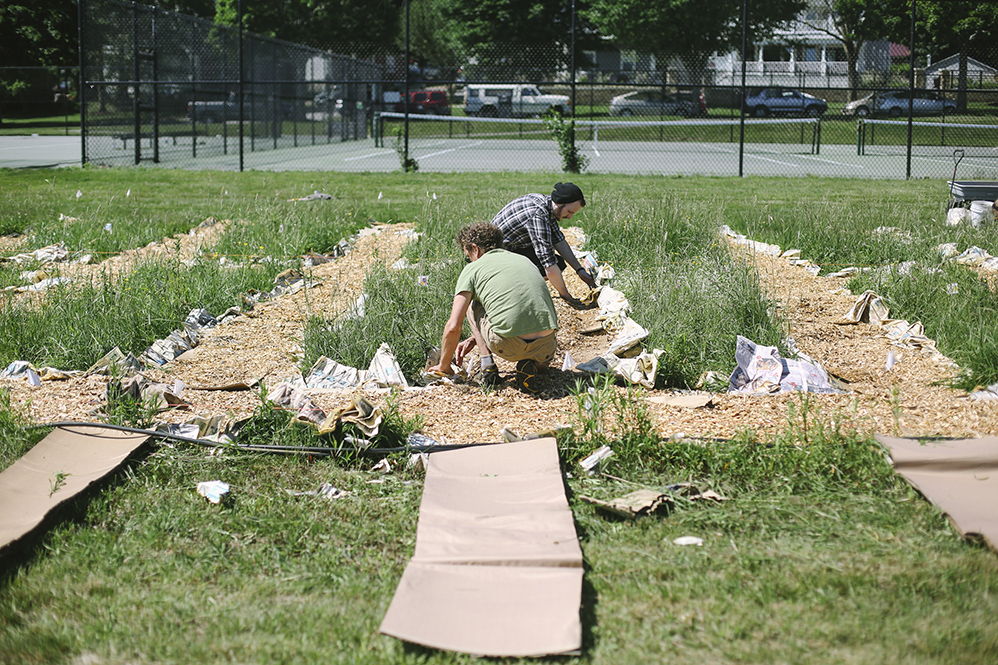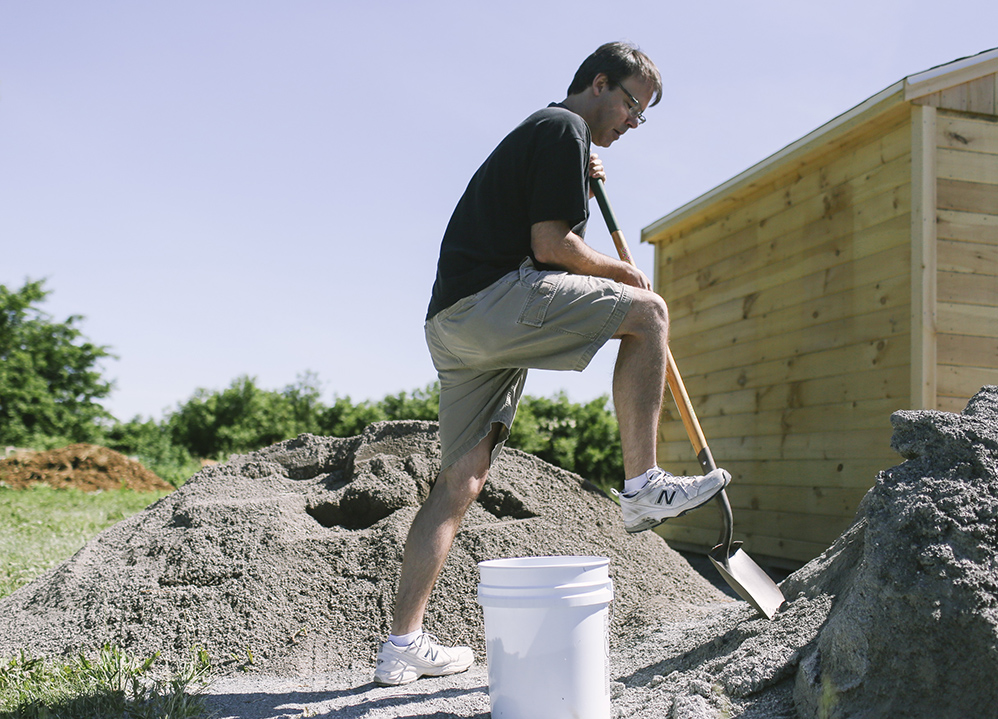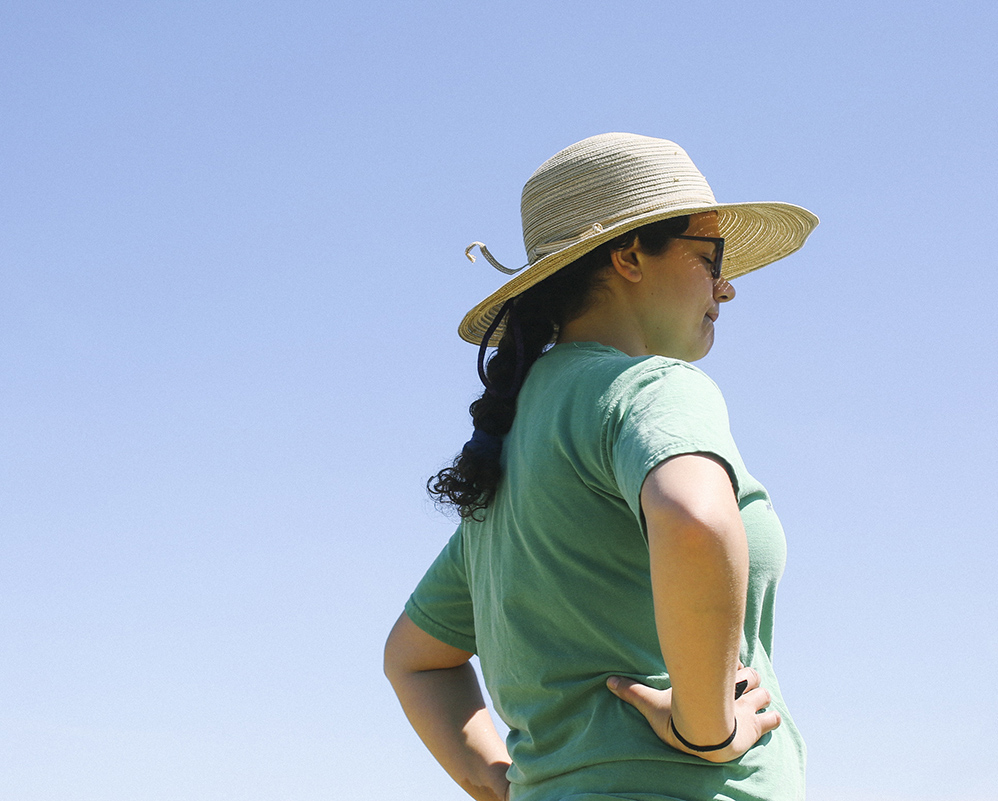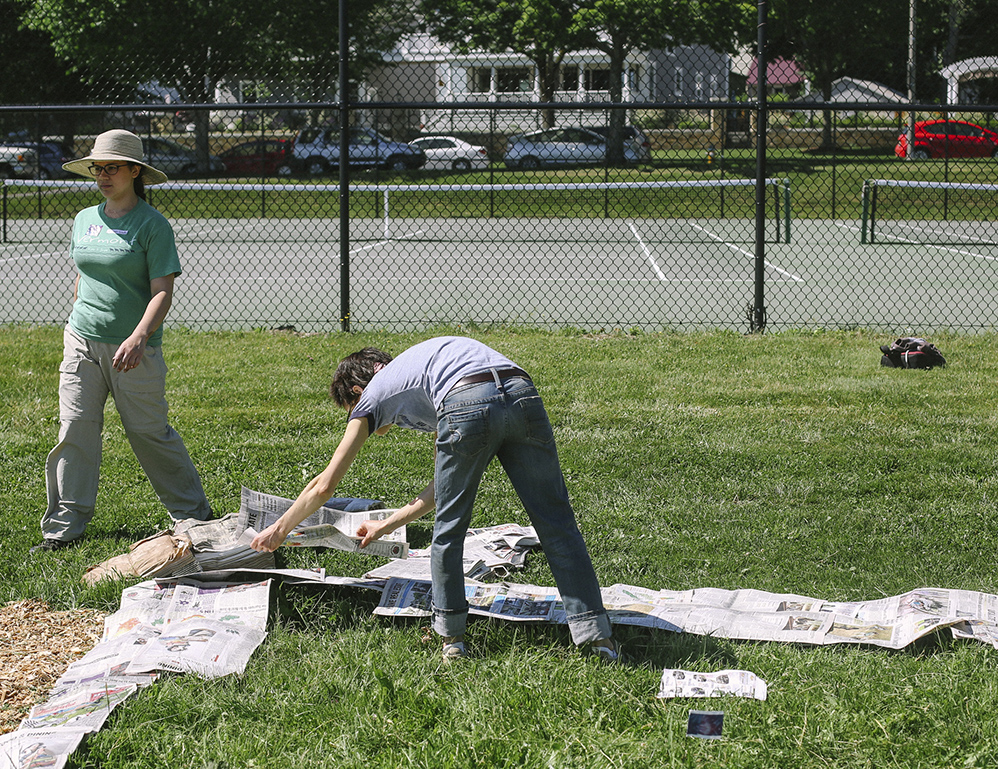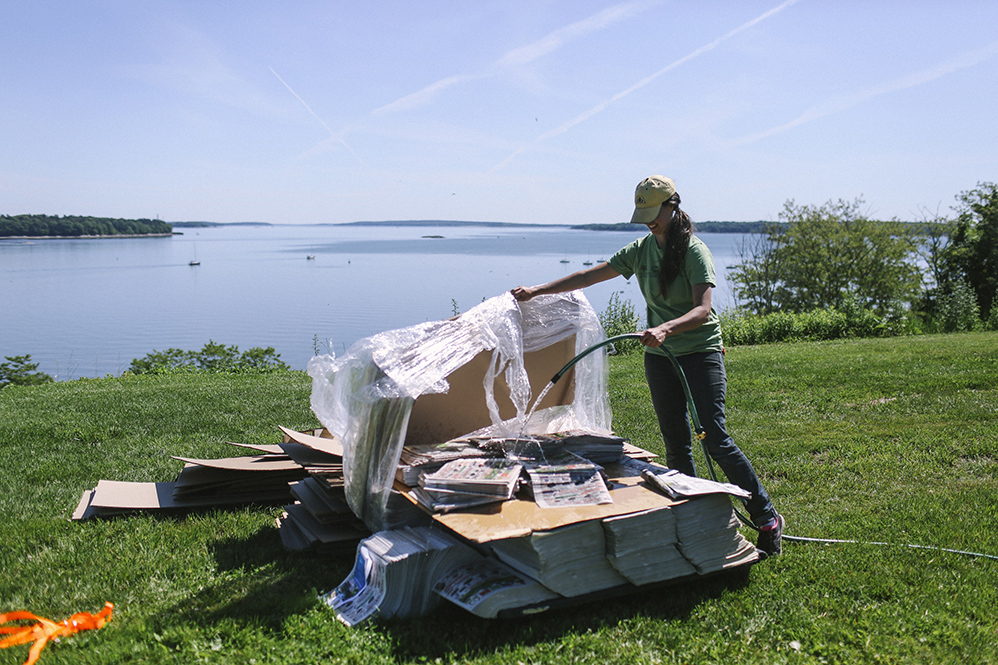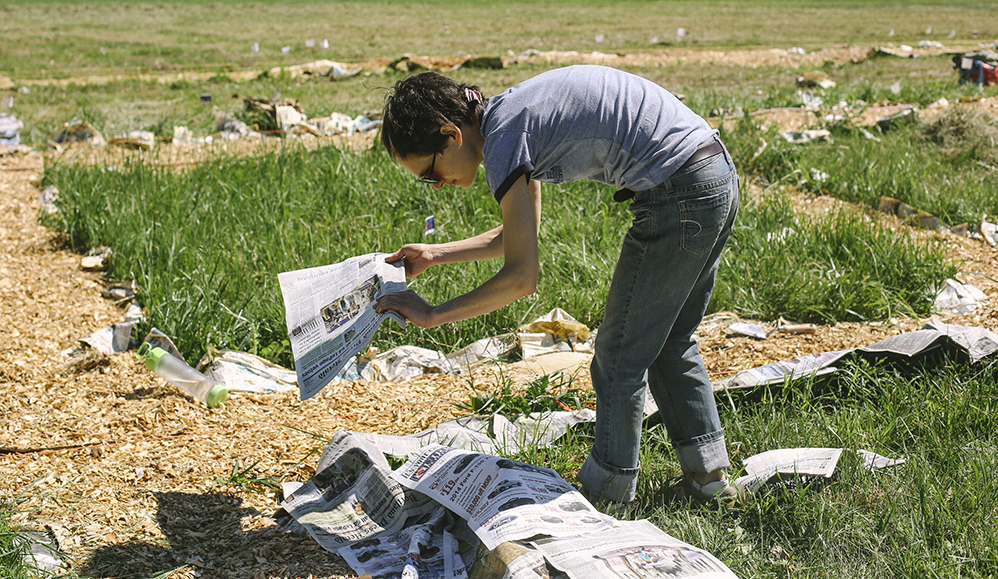Dozens of volunteer gardeners on Saturday transformed a section of lawn on the Eastern Promenade into 60 new community garden plots for Portland residents.
And they did it all without having to dig up any sod.
The event, called a “permablitz,” was organized by the Resilience Hub, a Portland nonprofit that promotes permaculture, or ecologically friendly agriculture and social design; Cultivating Community, a Portland nonprofit that promotes better access to healthy, local foods; and Portland’s Urban Agriculture Sub-Committee. About 80 volunteers showed up to create new planting beds behind the tennis courts.
The project was financed with a $15,000 grant from Harvard Pilgrim Health Care that covered the cost of a garden shed, fencing and a water source. Other materials were donated. The Maine Tool Library in Portland supplied shovels, rakes and other garden implements. Garbage to Garden in Portland donated some of the compost. The volunteers supplied the manpower, managing the transformation in under six hours.
“It’s like barn raising,” said Lisa Fernandes, executive director of the Resilience Hub.
The new plots are expected to make a big dent in the garden plot waiting list, which at last count was over 200, said Laura Mailander, an urban agriculture specialist with Cultivating Community, which oversees the city’s community garden program. With the new additions, the city now has 358 plots in nine different gardens.
The new garden has full sun exposure and, with Casco Bay as a backdrop, some of the best views in the city. A soil test showed the new garden was free of lead contamination but in need of organic matter.
The new plots were created by sheet mulching, also known as lasagna gardening, rather than by digging up and removing the sod. The workers dumped layers of dry leaves, grass clippings, composted manure, seaweed, stone dust and newspaper on the grass. The grass underneath turns into compost.
Fernandes said sheet mulching creates a nutrient-rich growing medium.
“I used to double-dig. I am in recovery now,” said Fernandes.
Sheet mulching is also the least expensive approach to creating a new garden.
Some of the volunteers had firsthand experience with the power of a permablitz. A Resilience Hub permablitz crew transformed the empty Westbrook yard of partners Jesse McAvoy and Ben Roehrl into an agricultural oasis that furnishes most of their food. They can 120 pints of vegetables, pickles and jams a year. They grow pears, apples, peaches, cherries and plums. They keep chickens and put in a pond for some ducks.
As part of the permablitz deal, McAvoy and Roehrl agreed to volunteer at other permablitz events, which they said is a pleasure.
“You really develop a sense of community. It is like a neighborhood,” Roehrl said.
Volunteer Sally Wright, who lives nearby the new garden, has been assigned one of the new plots. She said she has big plans even though the growing season is well underway.
“If I miss tomato season, I can still do my spinach, peas and lettuces,” said Wright.
Send questions/comments to the editors.


